Hemp Growing Class Tries to Dispel Stigma Of Cannabis
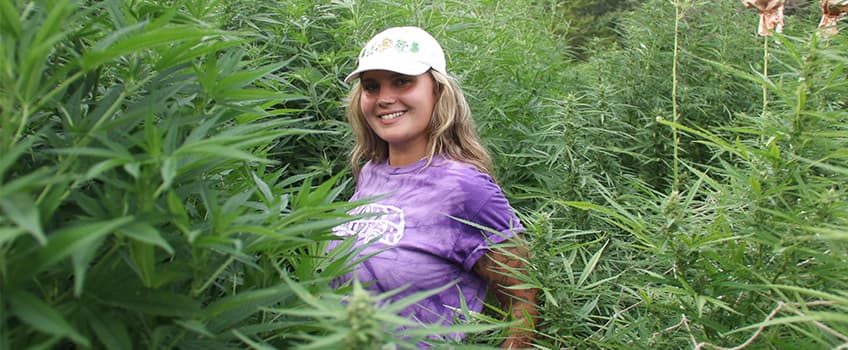
Valentina Fiero, a 2021 graduate, teaches a class in hemp cultivation at Stockton and has been instrumental in planting about 150 cannabis hemp plants in a 62-foot-long plot at the university's Sustainability Farm.
Galloway, N.J. — In the back of Stockton University’s 1.2-acre Sustainability Farm is a section some call “sin corner.”
Just a short distance from a row of 20-foot-tall hops vines and next to a line of tobacco plants is a 62-foot-long plot surrounded by a fence and a locked gate.
On the other side of the fence are something only a few universities in the country have cultivated outdoors -- hemp plants. In this case, about 150 of the plants are flourishing -- reaching heights of 10 feet or more.
“When it comes to universities, I would definitely say we stand out by doing what we are doing right now,” said Rob Mejia, a teaching specialist in Stockton’s Cannabis Studies program.
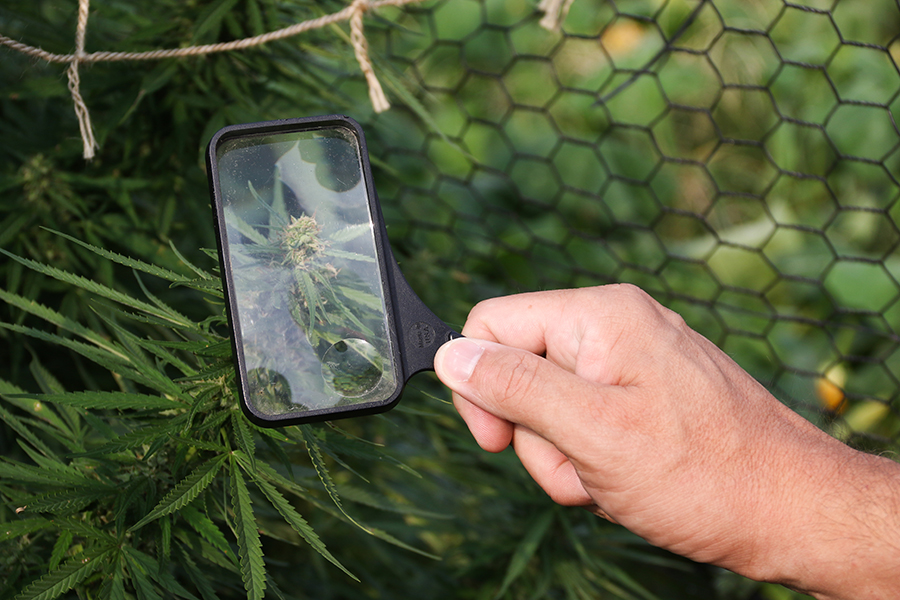
When it comes to universities, I would definitely say we stand out by doing what we are doing right now."
Rob Mejia, a teaching specialist in Stockton’s Cannabis Studies program.
Hemp is a botanical class of cannabis sativa grown specifically for industrial or medicinal use. The plants have little to almost no THC — the major psychoactive component of cannabis.
It’s the second year Stockton has grown the plants. This year's crop is part of its Cannabis and Hemp Research Initiative (CHRIS), which was created in 2021 to conduct agricultural and nonmedical cannabis and hemp research. This fall is also the second time Valentina Fiero, a 2021 Stockton graduate with a degree in Science and Environmental Science, has taught a class in hemp cultivation.
Her class took a recent visit to the farm to walk among the plants, examine and feel the leaves, smell their sweet, fruity aroma and get a first-hand experience of what it takes to grow the plant.
“I had never seen a harvest like that. I didn’t even know that Stockton had its own hemp farm,” said junior Alyssa Mims, from Mays Landing. “Going out there and registering what (Fiero) taught us and looking at it for myself, I think it was the best way to learn about the plants.”
Fiero couldn’t agree more. She was one of the first at Stockton to graduate with a minor in Cannabis Studies. In 2018, the university became the first in the state to offer the minor. After graduation, she got a job as a lead cannabis cultivator for Ayr Wellness, but she’s always been passionate about teaching the benefits of the stigmatized plant.
“I studied environmental science largely because I wanted to be able to have classes outside and do a lot of work with nature,” Fiero said. “Stockton was a great school to do that.”
However, after graduating she noticed that Stockton’s program focused heavily on law, history and the business of cannabis.
“I felt we needed more of that scientific aspect. That was my roots and my specialty. I wanted to bring that hands-on, outdoor aspect that I love,” she said.
And while her course touches on the history of hemp and different varieties of cannabis sativa, Fiero also works with students on the actual process of growing hemp plants from seeds all the way to harvesting them at the farm.
“We really want to let the students see how the plant grows and work on techniques like figure out the sex of the plant, how to hand pollinate, do regular maintenance, handle pests and put in irrigation systems,” Mejia said. “We want to teach the students cultivation techniques that they can transfer onto a hemp farm in New Jersey.”
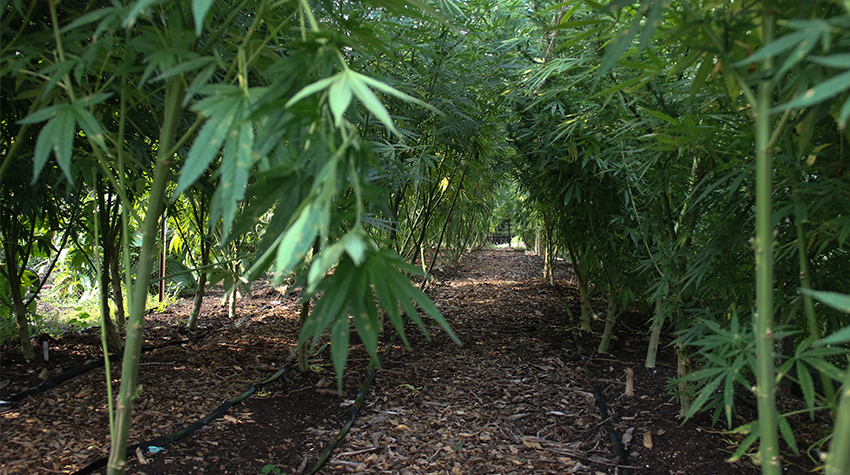
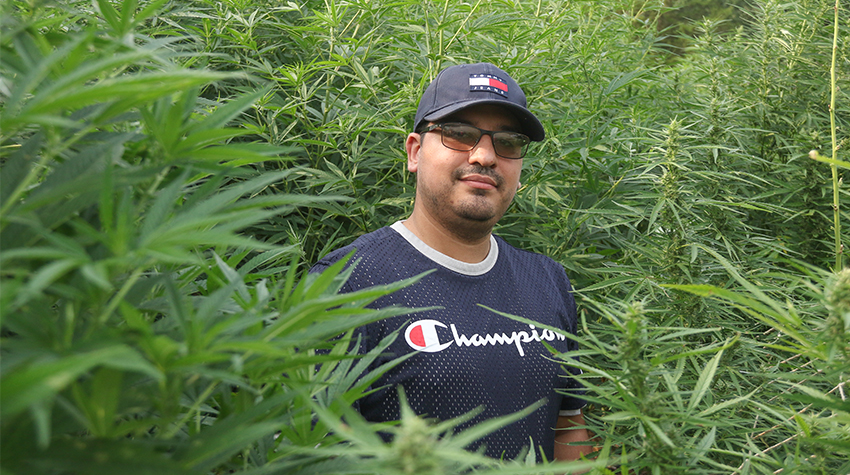
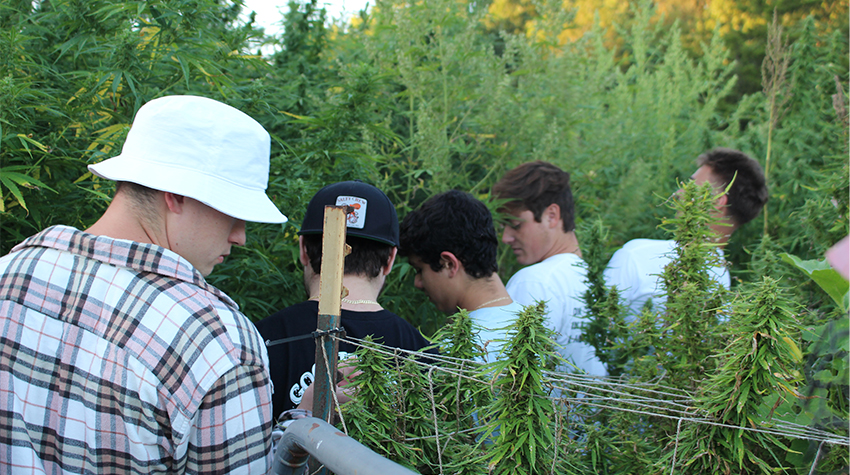
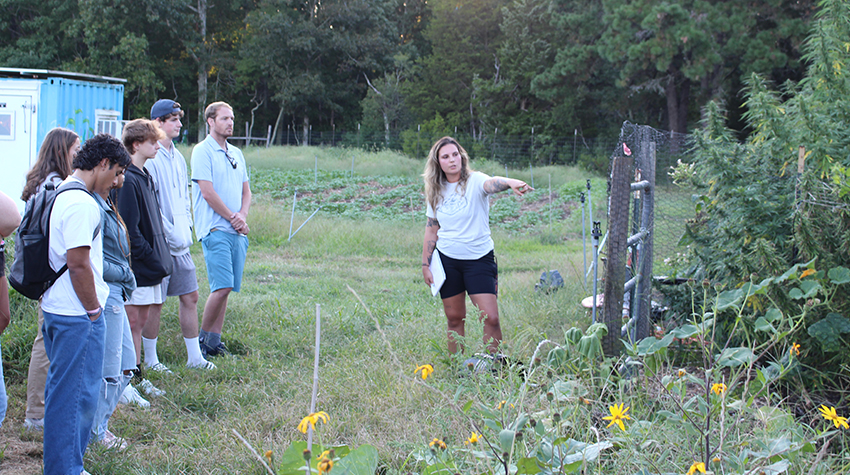
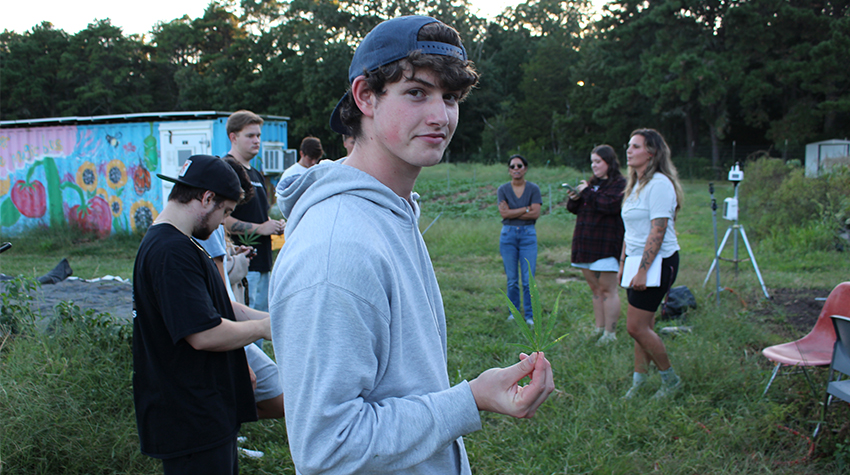
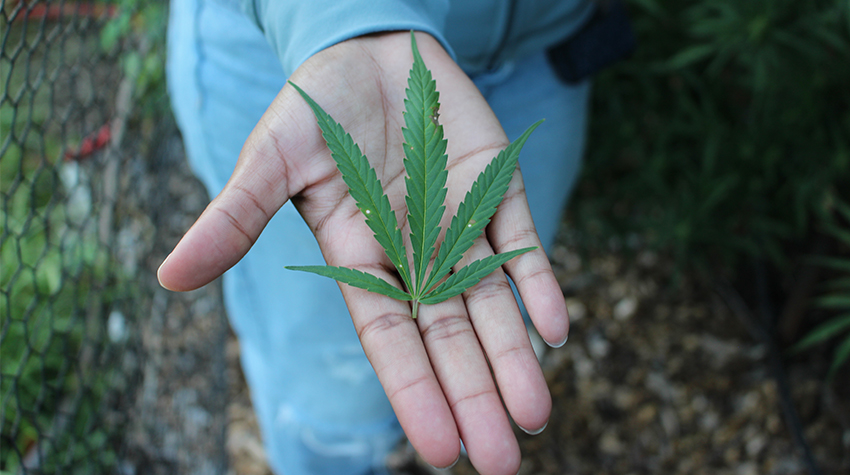
As a summer intern with Mejia and Fiero, senior Eduardo Rojas used those techniques from the very beginning. He was part of the group in June that not only planted the hemp seeds, but also set up fence posts and irrigation, and laid out mulch and topsoil to maintain the plants.
“You have to experience something before you actually know how to do it,” said the Accounting major who drove down from his home in Bayville three or four times a week to maintain the plants.
Rojas, who’s also in the Cannabis Minor program, hopes to get an accounting job with a company that has a cannabis division, and he’s grateful for the experience the internship gave him.
“You can read about it, but that’s not the same as being there and working with a team,” he said. “I got to see the indirect cost of things that are pretty hard to calculate. If you aren’t doing it, it’s hard to get an understanding of the things that can go wrong in farming like weather, bad timing, crop disease or invasive species.”
I would recommend the class to anyone who may be on the fence about cannabis. If someone has no prior knowledge about cannabis, I think it would enlighten them a lot."
Alyssa Mims, junior Health Science major from Mays Landing
“I would recommend the class to anyone who may be on the fence about cannabis,” the Health Science major said. “If someone has no prior knowledge about cannabis, I think it would enlighten them a lot. Seeing how it helps my mom through her daily life, then why wouldn’t everyone be taking that if it helps you.”
Fiero also hopes the class and the outdoor hemp site can remove some of the stigma surrounding cannabis and promote that it can be grown more sustainably outside. Mejia said a frequent cannabis complaint is the plant’s odor, hindering opportunities to grow it outdoors. One of the hemp farm’s research components was the installation of sensors around the plants to measure the odor and compare it to other fragrant crops grown outdoors, such as garlic. Mejia said that some data was collected this year but more will need to be collected from next year’s crop.
“It’s just a really good opportunity to teach this next generation why not to be scared of cannabis,” Fiero said. “We are taking something that people just don’t understand enough about and trying to change that narrative. And doing it on the university level, that’s the best way to do it.”
The crops in “sin corner” are for university research purposes only. The hemp will be harvested, which includes drying and storing of the fiber material and the collection of seeds. The remaining parts of the plants will be placed in the farm’s compost pile at the end of the growing season.
-- Mark Melhorn, photos by Lizzie Nealis and Mark Melhorn


